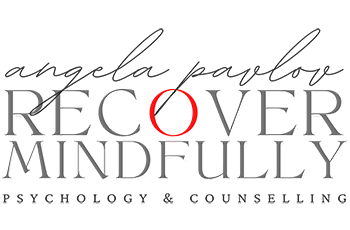Mental Health Awareness

Mental health awareness is something that can help the millions of people who are impacted by mental health issues throughout Australia. According to the National Alliance on Mental Illness (NAMI), one in five adults have had or currently have symptoms of a mental illness. These statistics show just how prevalent living with a mental illness actually is.
This is also why NAMI recognises Mental Health Awareness Month in May. The goal with a whole month of mental health awareness is to help people with mental illnesses understand that they are not alone in their struggles—and that getting treatment can make all the difference. If we applied this approach to mental health every day of the year, more and more people could benefit from knowing about these common illnesses.
Some common disorders that need more awareness include:
- Generalised anxiety disorder
- Substance use disorders
- Depression
- Bipolar disorder
- Post-traumatic stress disorder
- Schizophrenia
- Suicidal ideation
Though all of these mental health conditions have different symptoms, they can impact every aspect of your life. In truth, your mental health influences the way that you think, feel, and behave. This means that your social, professional, and personal life can be greatly impaired.
Many people who have mental health conditions aren’t sure how to cope with their symptoms and resort to unhealthy coping mechanisms to push away their emotional discomfort. As a result, you might also have an addiction to drugs or alcohol. Additionally, if you have one mental illness that goes untreated, you actually are at a greater risk for developing co-occurring disorders and you will need dual diagnosis treatment to fully heal.
Mental health awareness makes all of this information available to you so that you can assess your own risks and find help for any conditions you might have.
How Can Mental Health Awareness Help?
Mental health awareness doesn’t just help you. Knowing more about mental health disorders can also help your family members, friends, and coworkers. Three of the main reasons why mental health awareness is so important are outlined below:
1. Understand Your Symptoms
A lot of people who have mental health symptoms don’t actually realise that their struggles are a result of untreated disorders. Therefore, mental health awareness is helpful in getting you to understand your symptoms.
While all mental health conditions have different symptoms, some signs to look out for include:
- Changes in sleeping patterns
- Loss of appetite
- Impulsive decision making
- Turning to drugs or alcohol in moments of distress
- Suicidal thoughts
If you haven’t been feeling like yourself lately, you might have a mental health issue that requires immediate treatment. After all, the symptoms of mental health disorders can be incredibly dangerous for both your emotional and physical health.
2. More BehavioUral Health Resources
Another significant benefit to mental health awareness is that the more people know about the need for mental health treatment, the more mental health resources will become available. Without mental health resources, people would not be able to recover.
The most important mental health resources are:
- Mental health hospitals
- Behavioural health programs
- 12-step programs
- Medical detox from drugs and alcohol
- Inpatient mental health treatment.
In mental health hospitals you will have all of the resources you need to recover from mental health conditions, heal from co-occurring disorders, and learn strategies to maintain your health after your time in treatment. And mental health resources like crisis service care can keep you safe so that you have the ability to go through treatment.
3. Break the Mental Health Stigma
Most importantly, mental health awareness can break the stigma of needing mental health care. Having mental health disorders doesn’t mean that you are “crazy”. In actuality, mental health impacts millions of people across the country. With more awareness and the right mental health care, you will realise that you are not alone. Having mental health support gets you one step closer to mental health recovery.
